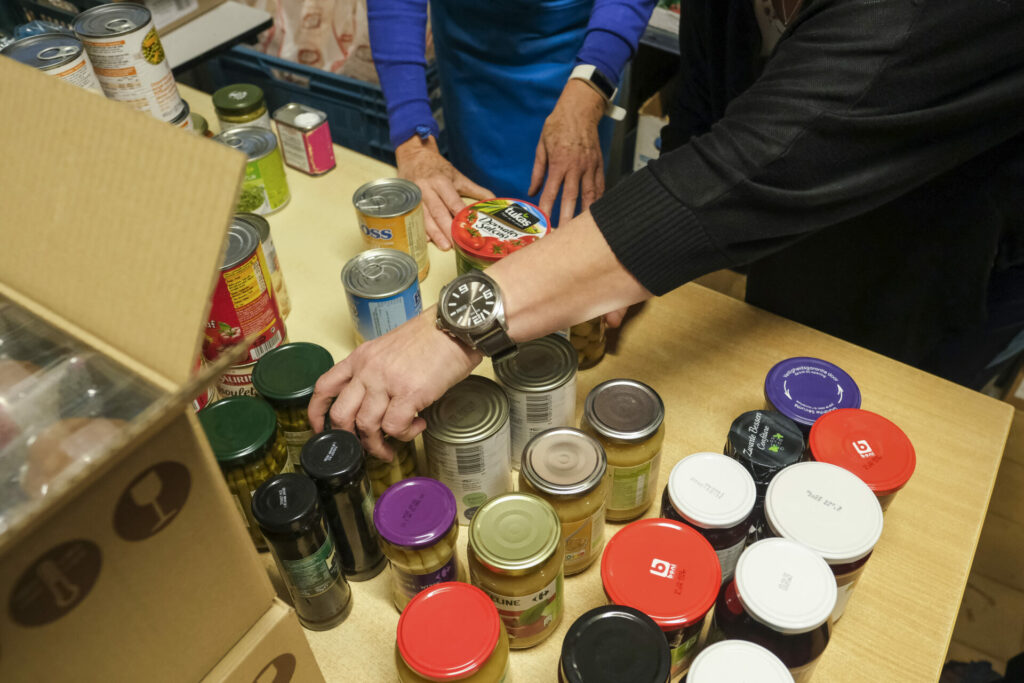One in eight Belgian residents' income is below the poverty line – putting them at risk of poverty – as revealed by the Poverty Yearbook of the University Foundation for Poverty Reduction states, which bases its findings on figures from 2021.
In Belgium, 12.7% of the population lives in a household whose income falls below the poverty line, meaning that one in eight residents is officially considered poor, according to the Yearbook's official figures.
Most of those with an income below the poverty live in the Brussels-Capital Region, where 25.4% of residents live in a household affected by poverty, compared to 7% in Flanders and 17.3% in Wallonia. However, it acknowledged that the group struggling to make ends meet is probably much larger.
In Belgium, the at-risk-of-poverty threshold for a single person is €15,513/year, which equates to an income of approximately €1,293/month. For a household of two adults and two children, the threshold for a joint income is at €2,715 per month. If your income is lower than that, you are considered 'poor.'
Figures a lot higher in practice
This threshold is a European agreement for quantifying poverty and is a strict limit; someone who earns even a euro more than the threshold falls outside the figures, and is therefore not considered at risk of poverty – which is not the case in practice. Effectively, 22.4% of Belgians live in a household that is vulnerable to poverty, according to the Poverty Yearbook – a lot more than the 12.7% who "officially" fall below the risk threshold.
Additionally, certain population groups have a higher risk of poverty: single people, single-parent families, and tenants, for example, but also people who do not (or cannot) work, so-called "low-skilled" people and Belgian residents who were born outside the EU.
Currently, the threshold is only determined by disposable income, which ranges from wages to child benefits, rental income and all kinds of benefits, with deduction of taxes and premiums. Debts such as a loan or assets such as a savings account, bonds or shares are not taken into account, but the Yearbook coordinator Jill Coenen argued that it could be interesting to consider them in the calculations.
"That way, you gain insight into a group that does not appear in the poverty statistics, but at the same time has (very) little savings to fall back on," she told VRT. "And if you do not have any savings to fall back on, you have a good chance – if there is a crisis like now – to exhaust your reserves quickly with nothing to fall back on."
Related News
- Poor becoming poorer in Belgium, lower middle class increasingly struggling
- Definition of ‘rich’ differs wildly from country to country, studies show
- 'Triumph of welfare state': Poverty fell during first year of pandemic
This year's central theme of the Poverty Yearbook is migration, she explained. "We see, for example, that one in three people born outside the EU lives in poverty. This is partly due to the unequal educational and labour market opportunities of migrants, but also to discrimination in many areas of our society."
"We also see that many migrants do not dare to take the step to a Public Centre for Social Welfare (OCMW/CPAS) because they are afraid that they would lose their right of residence," Coenen said. "Those who come to Belgium from outside the EU as a migrant must be able to demonstrate that they can support themselves. However, those regulations are not clear and should be amended."
Strikingly, the risk of ending up in poverty decreased in 2021 compared to 2020 because the poverty risk threshold exceptionally remained stable.
Incomes determine the poverty line, and as they generally increase, the threshold rises with it. During the Covid-19 crisis, however, incomes no longer rose and even fell. But that decrease was compensated by government support, meaning the total income that determines the threshold remained about the same.

